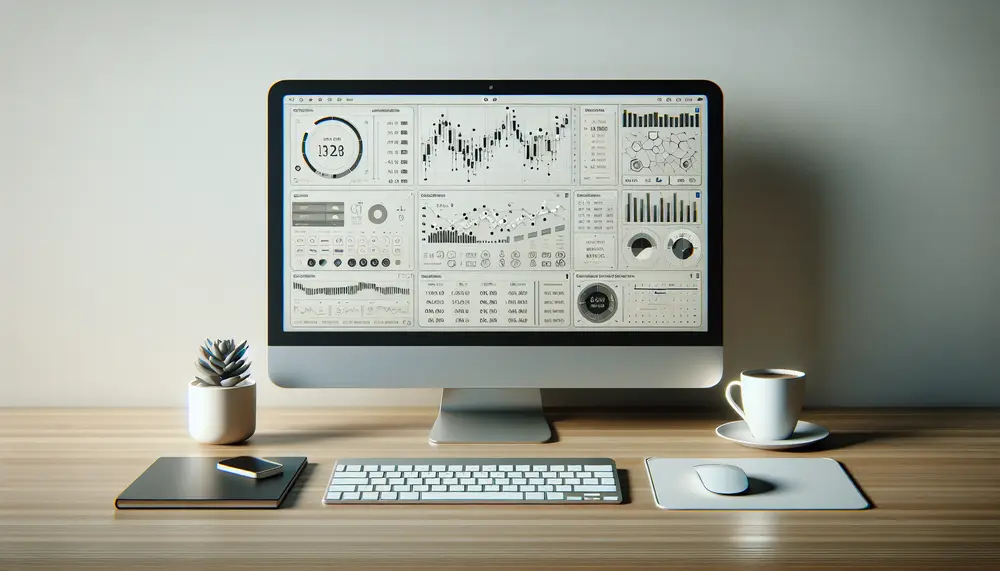Margin
Margin
Understanding the Term 'Margin' in Trading
In the realm of trading, the term 'Margin' holds significant importance. It isn't just a term; it's a practical tool that allows traders to open larger positions than their account balance would typically allow.
Defining 'Margin'
Simply put, a 'Margin' is a specific amount of money required in a trading account to open a new position. It is essentially a part of your account balance held as a deposit against potential losses from trading. This deposit acts as collateral for your position in the market.
How does Margin Work in Trading?
In trading, 'Margin' allows you to borrow money from your broker to control more substantial positions than your available capital. For instance, if you want to trade $10,000 worth of a particular stock and the broker's margin requirement is 10%, you would only need to have $1,000 (10% of $10,000) in your account. The broker would provide the rest of the fund.
Importance of Margin in Trading
Margin can be advantageous in trading as it grants you greater market exposure than your initial investment. Suppose, as a trader, you strongly believe in your market analysis of an asset's future value. In that case, trading on margin allows you to potentially increase your profits if the market moves in the direction you predicted.
Risks of Margin Trading
While it’s crucial to understand the benefits of trading on Margin, it's equally vital to be aware of the risks. If the market moves against your position, you could potentially lose more than your initial deposit. This is why it’s crucial to implement robust risk management strategies when trading on margin.
Types of Margin
There are primarily two types of margins in trading - the 'Initial Margin', and the 'Maintenance Margin'. The initial margin is the money needed to open a position, while the maintenance margin is the minimum amount necessary to hold the position open. If your account balance falls below the maintenance margin requirement, the broker may issue a 'margin call', requiring you to deposit more funds.
In Conclusion
To wrap up, Margin is an essential concept that traders need to understand and manage effectively. It allows you to leverage your trades, amplifying both potential profits and losses. As such, it requires careful use and well-thought-out risk management strategies.
Blog Posts with the term: Margin

Infinity Hash is a cryptographic hash function designed to enhance the speed and security of mining processes and blockchain transactions, offering unique properties that make it preferable for digital trading. It stands out due to its deterministic nature, ensuring consistent...

Bitfinex is a sophisticated cryptocurrency trading platform offering advanced tools and features for professional traders, including margin trading, derivatives, lending markets, and high liquidity. The guide provides an in-depth look at Bitfinex's functionalities such as customizable interfaces, diverse order types,...

KuCoin is a global cryptocurrency exchange known for its wide range of supported cryptocurrencies, advanced trading features, and strong security measures. It caters to both beginners and experienced traders with user-friendly interfaces, educational resources, various services like lending and staking,...

Cripto Intercambio refers to online cryptocurrency exchange platforms where users can buy, sell, or swap various cryptocurrencies and convert them into traditional currencies. These exchanges provide a secure environment with features like KYC compliance for user registration, low transaction fees,...

Levex, or leveraged trading, allows traders to increase market exposure and potential profits using borrowed funds but also amplifies risks. It requires a strong understanding of trading fundamentals and robust risk management strategies due to the heightened potential for both...

LedgerX is a regulated financial platform established in 2013 that offers cryptocurrency derivatives such as options, futures, and swaps to both retail and institutional investors. It provides a secure trading environment with features like mini contracts and physical settlement, catering...

BTCC, one of the first cryptocurrency exchanges founded in 2011, has evolved to meet market demands by offering innovative trading services and maintaining a commitment to security and regulatory compliance. It sets itself apart with features like user-friendly interface, diverse...

This article provides a beginner's guide to setting up an account for altcoin trading on the Altcoin Trader platform, highlighting its user-friendly interface and no minimum deposit requirement. It covers the registration process, including KYC verification, various deposit methods with...

This article explores the influence of news on the cryptocurrency market. It emphasizes that news stories, whether positive or negative, can significantly impact investor sentiment and cause dramatic shifts in crypto prices. The article discusses different categories of news that...

Bitstamp is a reputable cryptocurrency exchange established to offer secure and user-friendly trading services, catering to both beginners and experienced traders with its focus on reliability and regulatory compliance. Founded in 2011, Bitstamp has adapted through various challenges by moving...

dYdX is a decentralized exchange (DEX) on the Ethereum blockchain offering advanced trading options like spot, margin trading, and derivatives without intermediaries. It features an order book model for price matching, leverages off-chain order books with on-chain settlement using StarkWare’s...

Leveraging ETFs is a strategy that allows investors to enhance their exposure to a particular market or asset class. By borrowing funds to increase investment capital, investors can potentially amplify returns. However, leveraging also comes with increased risk and the...

The article explains the differences between crypto wallets and exchanges, detailing their functions, types, and key distinctions. Crypto wallets focus on secure storage of digital assets with full user control over private keys, while crypto exchanges facilitate buying, selling, and...

Binance is a leading global cryptocurrency exchange offering tools for both beginners and experienced traders, with features like spot trading, futures, margin trading, staking, Launchpad token offerings, and a mobile app. The platform emphasizes user-friendliness in its interface design and...


